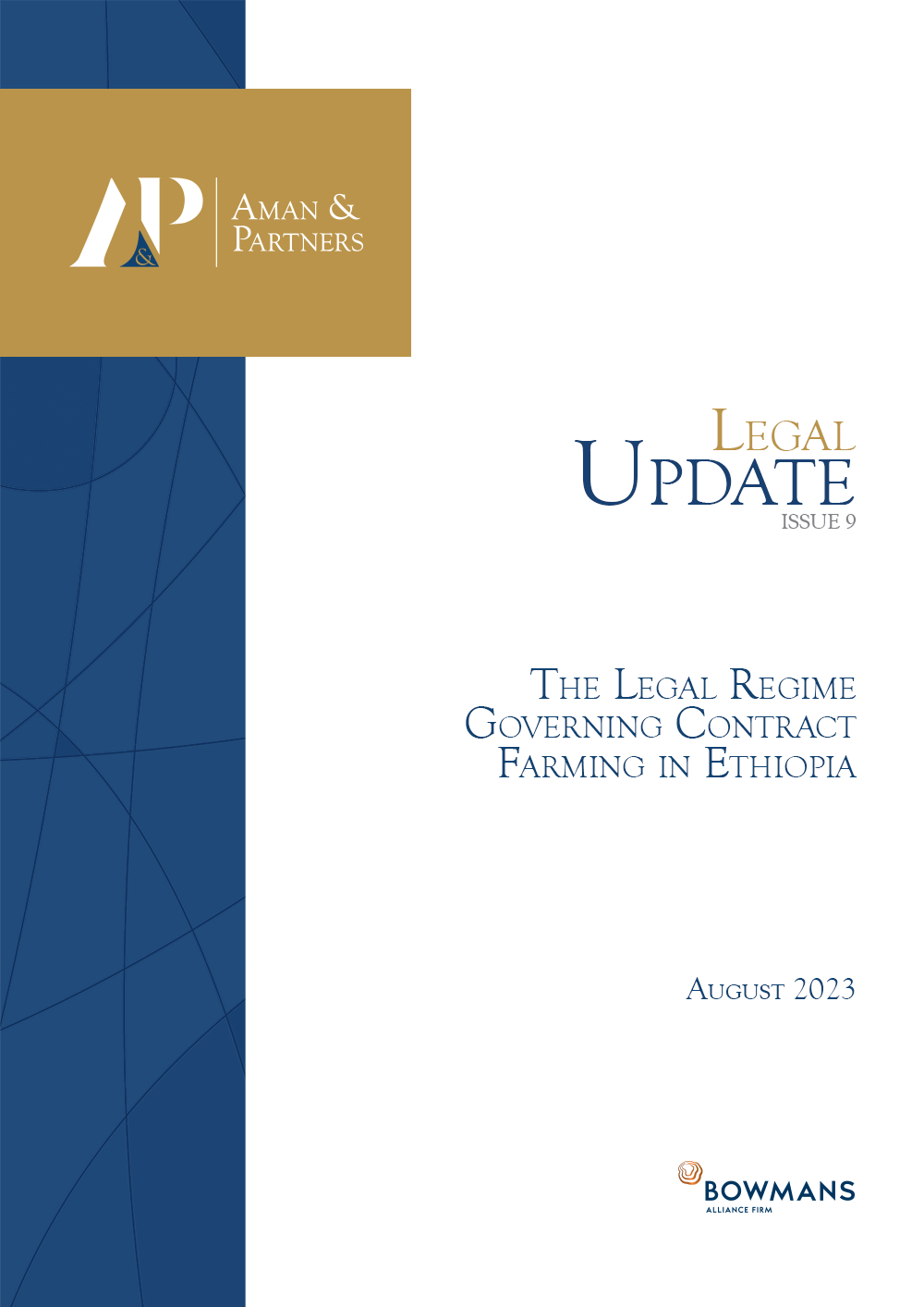INTRODUCTION In what can be described as a significant step forward in Ethiopia’s financial services sector, the National Bank of Ethiopia (NBE) issued a directive that allows non-traditional financial institutions to engage in the business of issuing payment instruments. The directive titled “Licensing and Authorization of Payment Instrument Issuers Directive No. ONPS/01/2020” (Directive) was issued in April 2020. Services that traditionally fell in the banking service, such as cash-in and cash-out; local money transfer including domestic remittance, load to card or bank account, transfer to card or bank account, inward international remittance; domestic payments including bill payment services; and micro-saving, micro-credit, microinsurance and pension products can now be provided by nonbank companies that fulfill the criteria under the Directive.
The Directive, a subsidiary legislation to the National Payment System Proclamation No. 718/2011, repeals and replaces the 2012 Directive on Mobile and Agent Banking Services. This legal update briefly discusses the Directive. The update focuses on issues of licensing and capital requirements, and the potential role of foreign investors in the issuance of payment instrument business.
LICENSING AND CAPITAL REQUIREMENTS
Licensed banks and micro-finance institutions are by default allowed to issue payment instruments without obtaining a specific license for this purpose. They are only required to submit an application to the NBE to get authorization for the issuance of payment instruments. Apparently, the general licenses they hold for engaging in the banking sector implicitly allows them to do such activities as issuance of payment instrument and as such they are not required to get a separate license. However, any other person should submit application and obtain a license from the NBE in order to do business in the issuance of payment instrument. The Directive defines payment instrument as “any instrument whether tangible or intangible that enables a person to make payments or transfer money including electronic money”.
Despite the appetite and high expectations of foreign financial and technology firms to invest in payment transaction services (including mobile money services), the Directive has limited ownership of payment instrument issuer companies only to Ethiopian nationals, the Ethiopian Government and foreign nationals of Ethiopian origin (Ethiopian diaspora).
The Directive requires a minimum paid-up capital of Birr fifty million (50,000,000 ETB). In contrast to the Commercial Code that requires a minimum of five shareholders for a share company, the Directive requires a minimum of ten (10) shareholders to establish a share company that engages in the business of payment instrument issuance (except for a public enterprise). Also, the Directive provides that no shareholder can hold more than 20 % of the share capital of a company as payment instrument issuer (this limitation does not apply for a public enterprise). This contrasts with the maximum share capital ownership requirement for banks, where a person cannot hold more than 5% of the shares in a bank.
In addition, an applicant should meet a number of requirements in order to obtain a license under the Directive. An applicant should provide a number of comprehensive documents, including a document that shows its ability to manage the system and allocate necessary resources to operate an efficient system. Moreover, a licensed payment instrument issuer should appoint directors, chief executive officers and seniors officers that meet the higher educational qualifications and many years work experience requirements in the Directive. Their appointment should get prior written approval from the NBE. In general, payment instrument issuers need to allocate huge amount of resources and meet a number of strict requirements to obtain a license and continue to do business as a going concern. Apparently, such requirements are in place to ensure sound financial transactions and provide customers protection and efficient service.
POTENTIAL ROLE OF FOREIGN INVESTORS AS TECHNOLOGY SERVICE PROVIDERS
Non-traditional banking service providers are likely to flourish in the immediate future. These companies are likely to be owned by Ethiopian and diaspora investors and they are likely to be ag-gressive entrants.
That said, given that local resources and systems for the provision of digital financial services is at an early stage, we expect that licensed payment instrument issuers may look to foreign technology firms for the acquisition of technology systems and platforms in order to stay competitive by offer-ing secured and modern payment solutions to customers.
The Directive allows payment instru-ment issuers to outsource the provision and maintenance of technology platforms. This will likely increase the demand for technology services in payment instrument issuance business.
We antici-pate that foreign technology companies will try and take advantage of this opportunity. Thus, we expect that licensed payment instrument issuers will create arrangements with foreign technology and mobile money firms to provide creative technology solutions for their business.
Disclaimer
The information contained in this legal update is only for general information purposes. Nothing herein shall be considered and relied upon as a legal advice or a substitute thereto.





